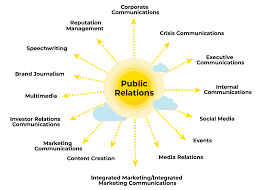Unlocking Success: Maximising the Impact of Relationship Services in Today’s Business Landscape
The Importance of Relationship Services in Today’s Business World
In today’s competitive business landscape, building and maintaining strong relationships with customers, partners, and stakeholders is crucial for success. This is where relationship services play a vital role in helping businesses cultivate meaningful connections and foster long-term loyalty.
Relationship services encompass a range of strategies and tools designed to enhance interactions and engagement with various stakeholders. From customer relationship management (CRM) systems to personalised communication channels, these services are instrumental in creating positive experiences and driving business growth.
Benefits of Relationship Services:
- Customer Retention: By implementing effective relationship services, businesses can improve customer satisfaction, leading to higher retention rates and repeat business.
- Enhanced Communication: Relationship services enable businesses to communicate with customers in a personalised manner, fostering trust and loyalty.
- Data-driven Insights: Through CRM systems and analytics tools, businesses can gain valuable insights into customer behaviour and preferences, allowing for targeted marketing efforts.
- Partnership Development: Relationship services also extend to building strong partnerships with suppliers, distributors, and other key stakeholders, fostering collaboration and mutual growth.
Implementing Effective Relationship Services:
To leverage the benefits of relationship services effectively, businesses should focus on the following key areas:
- Personalisation: Tailoring interactions based on individual preferences and needs can significantly enhance the customer experience.
- Data Management: Maintaining accurate customer data is essential for delivering targeted communication and tracking engagement metrics.
- Omnichannel Approach: Utilising multiple communication channels such as email, social media, and live chat ensures a seamless experience across touchpoints.
- Cross-functional Collaboration: Aligning sales, marketing, and customer service teams to work cohesively towards building strong relationships with stakeholders.
In conclusion, relationship services play a pivotal role in driving business success by fostering meaningful connections with customers, partners, and stakeholders. By investing in effective relationship management strategies and tools, businesses can differentiate themselves in the market, drive loyalty, and achieve sustainable growth.
Top 5 Tips for Strengthening Your Relationship Through Effective Communication and Mutual Respect
- Communicate openly and honestly with your partner.
- Listen actively to your partner’s thoughts and feelings.
- Show appreciation and gratitude for your partner regularly.
- Make time for quality moments together, such as date nights or shared hobbies.
- Respect each other’s boundaries and individuality.
Communicate openly and honestly with your partner.
In the realm of relationship services, a fundamental tip for fostering strong connections is to communicate openly and honestly with your partner. Transparency and sincerity form the bedrock of trust and understanding in any relationship, be it personal or professional. By engaging in open dialogue and sharing thoughts, feelings, and concerns candidly, partners can build a solid foundation of mutual respect and empathy. Effective communication not only resolves conflicts but also strengthens bonds, leading to deeper connections and sustainable relationships built on authenticity and trust.
Listen actively to your partner’s thoughts and feelings.
Active listening is a fundamental aspect of effective relationship services. By attentively listening to your partner’s thoughts and feelings, you demonstrate empathy and understanding, which are essential for building trust and fostering a deeper connection. Taking the time to truly hear and acknowledge your partner’s perspective not only strengthens the relationship but also paves the way for open communication and mutual respect. Active listening is a powerful tool that can enhance relationships, improve collaboration, and lead to more meaningful interactions in both personal and professional settings.
Show appreciation and gratitude for your partner regularly.
Showing appreciation and gratitude for your partner regularly is a fundamental aspect of nurturing strong and lasting relationships. By acknowledging and expressing gratitude for their efforts, support, and presence, you not only validate their contributions but also strengthen the bond between you. Regularly showing appreciation can create a positive atmosphere of mutual respect and understanding, fostering a sense of value and connection that is essential for building trust and maintaining a healthy partnership.
Make time for quality moments together, such as date nights or shared hobbies.
In the realm of relationship services, a valuable tip is to prioritise quality moments together by setting aside dedicated time for activities like date nights or engaging in shared hobbies. These moments of connection and bonding not only strengthen the emotional ties between individuals but also foster a deeper understanding and appreciation for each other. By investing time in nurturing these meaningful experiences, relationships can flourish and thrive, creating a strong foundation built on mutual respect and shared joy.
Respect each other’s boundaries and individuality.
Respecting each other’s boundaries and individuality is a fundamental aspect of effective relationship services. By acknowledging and honouring the unique preferences, needs, and identities of individuals, businesses can build trust and foster genuine connections. This approach demonstrates a commitment to understanding and valuing the diversity within their customer base, partners, and stakeholders. By respecting boundaries and individuality, businesses can create a more inclusive and respectful environment that leads to stronger relationships and long-term loyalty.







